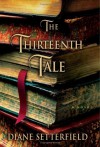Brisingr (Inheritance, #3)

The kid works hard, he really does. And I say “kid” very much on purpose.
I think it was in an interview with J.K. Rowling that I first read this, but she said that every writer when they're first starting out steals from other writers. For instance, in high school I pretty much plagiarized everything good about the first chapter of Harry Potter and the Goblet of Fire for a story I wrote. Eragon was a surprise hit, and yes, vast amounts of its plot were stolen directly from Star Wars and Lord of the Rings and Dragon Riders of Pern, but that’s not really the problem. Lots of fantasy and sci-fi is derivative these days as most people don’t have the talent or imagination to come up with new ideas. I’m not saying that as a slight; it’s frickin’ hard. What’s more, all fantasy by it's nature is derivative because it's based on mythology and the use of recognizable tropes. So yes, the plot of the Inheritance Cycle is a hodge-podge of other plots, but that's no really the problem here. Tropes, types, are features of ANY story, no matter how hard authors may try to deny it. Tropes and myths and similarities are why we seek the same types of stories out over and over again. The trick isn’t to create an elaborate plot, then, hoping to circumvent years and years of similar plots. No, the trick is to create a world and characters which can exist on their own and overcome those similarities.
Paolini’s youth is working against him. His age – 15 as of the writing of the first book – was one of the main selling points of the novel. I mean, what fifteen year old has the fortitude to sit down and write a whole novel, let alone one that is competently written? He did what most young writers do and he did with extreme energy and ambition. We can't fault him for that, especially as it was his first book, and due to many strokes of luck, it became a huge success. I would argue that it was his youth that made him famous. We as a culture are obsessed with prodigies, and this kid is a prodigy. Unfortunately, he was published and made famous at a time when hard work and rejection should have been forcing him to craft his skills at a more rigorous pace.
The first book, while flawed, was charming and intriguing and of a normal length. And then, when Eldest and Brisingr came along, it's as if his editors didn't have the heart to tell him he was creating somewhat of an unwieldy mess. You get the feeling that Paolini’s editors aren’t sure exactly why Eragon was such a huge hit and instead of curbing him back they just let him free to do what he likes, relying on Book One’s popularity to get them through. With age and experience, I think the Inheritance Cycle could have been fabulous, but as is, Paolini is often more concerned with superfluous description, language, and exposition, and he has by no means mastered the (tricky) art of plot structure. Reading Brisingr (which I thought was actually better than Eldest) I constantly felt like I was watching a soap opera. The book had no sense of story arc (conflict, build-up, climax, resolution) and instead felt more like just following this kid Eragon around for a series of unrelated adventures that were sometimes awesome and most of the time not. I also feel like Paolini has a tendency to substitute description and violence for characterization. I don’t connect with any of the characters except Saphira. I could never not like Saphira; she’s a dragon. She’s blue, and she talks. Elva is good, she’s really creepy (and as far as I know, original). The sword sequence was very intriguing, but again, shoved in the plot where it was, it had far less impact than it could have.
The only overarching plot is Eragon’s quest for a sword (and underneath, his acceptance of his heritage, which is hardly mentioned at all except retroactively.) Both of those were by far my favorite parts of the book, but were they were pushed under the surface in favor of other things, for example Roran. I don't really understand the point of wasting so many pages on Eragon's cousin. He isn't the protagonist, and we could have learned about all of his adventures through summation. Unless Paolini is planning on making him the next Dragon Rider (and even then, it still seems like a waste of time), he could have cut over three hundred pages from the novel just by excising the Roran bits.
Overall, I am dissatisfied, but I am still intrigued enough by the concept of the story to finish out the last book when it finally comes out.




